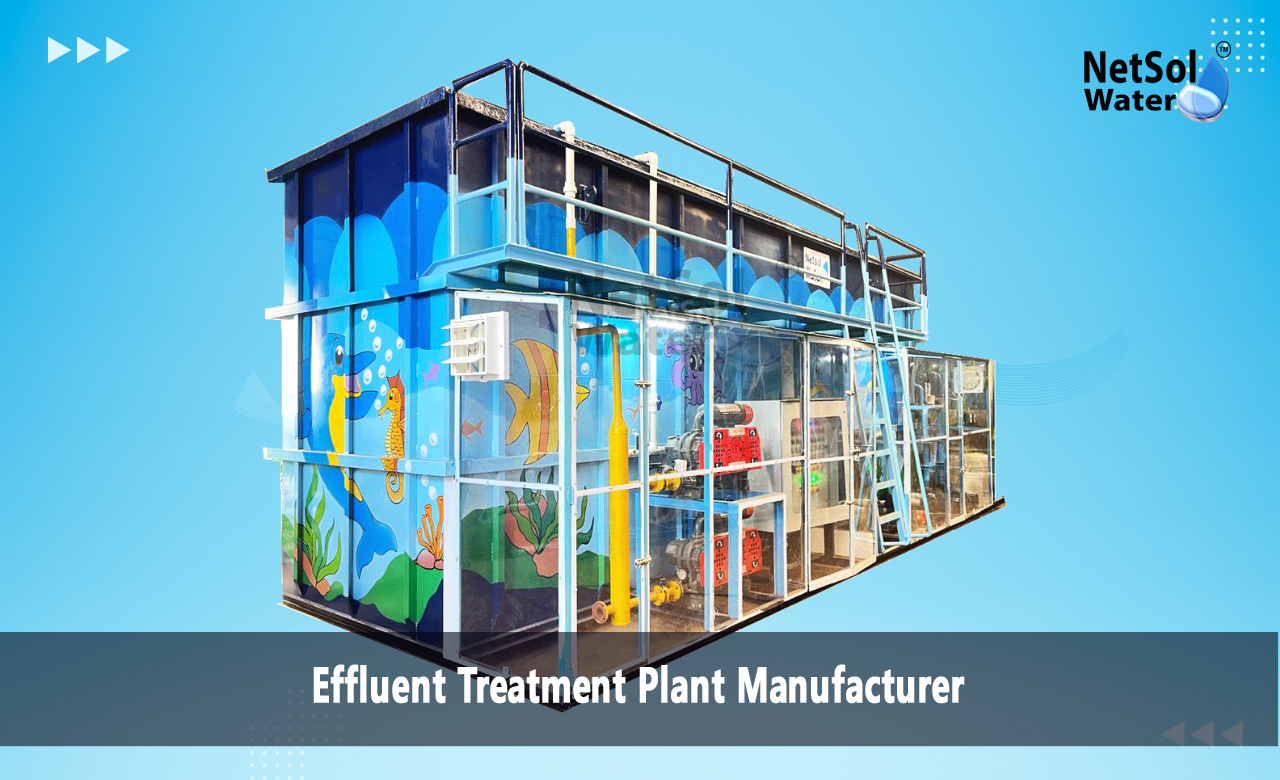
Effluent treatment plays a pivotal role in maintaining environmental sustainability and complying with strict wastewater management regulations. At Netsol Water, we take pride in being one of the leading Effluent Treatment Plant manufacturers in the industry. With innovative technology, exceptional design capabilities, and a commitment to eco-friendly solutions, we provide state-of-the-art systems to manage and treat industrial wastewater effectively.
What Is an Effluent Treatment Plant (ETP)?
An Effluent Treatment Plant is a specialized system designed to treat wastewater generated from industrial processes. It removes contaminants, toxins, and pollutants to ensure the treated water meets environmental standards before being discharged into the ecosystem or reused for industrial applications. ETPs are critical in sectors such as pharmaceuticals, textiles, chemicals, food processing, and more.
Key Components of an Effluent Treatment Plant
An efficient ETP consists of multiple units, each tailored to handle specific contaminants. The major components include:
Primary Treatment Units
Screens and Grit Chambers: Remove large solids, grit, and debris from the effluent.
Equalization Tanks: Balance fluctuations in flow rate and pollutant concentration.
Secondary Treatment Units
Aeration Tanks: Facilitate biological treatment by introducing oxygen to support microbial growth.
Clarifiers: Separate biological sludge from treated water.
Tertiary Treatment Units
Filtration Units: Employ sand, activated carbon, or membrane filters to remove finer particles and impurities.
Disinfection Systems: Use UV, ozone, or chlorination to eliminate harmful pathogens.
Sludge Management
Dewatering Units: Convert sludge into a manageable solid form for safe disposal.
Why Choose Netsol Water as Your ETP Manufacturer?
1. Cutting-Edge Technology
At Netsol Water, we integrate advanced technologies like Membrane Bioreactors (MBR), Sequential Batch Reactors (SBR), and Moving Bed Biofilm Reactors (MBBR) into our ETP designs. These systems provide efficient treatment while minimizing operational costs.
2. Customizable Solutions
Every industry has unique effluent treatment requirements. We specialize in delivering tailor-made ETP solutions designed to meet specific challenges, ensuring compliance with regulatory norms.
3. Expertise Across Industries
With decades of experience, we serve a diverse range of industries, including:
Pharmaceuticals: Removing harmful chemicals and bio-wastes.
Textile and Dyeing: Treating high-color and chemical-laden wastewater.
Food Processing: Handling organic contaminants and oils.
Chemical Manufacturing: Managing hazardous effluents safely.
4. Sustainability-Focused Design
Our ETPs emphasize resource conservation by enabling wastewater recycling and sludge reuse, reducing environmental impact. We are committed to providing eco-friendly solutions that align with global sustainability goals.
Process Flow in an Effluent Treatment Plant
1. Preliminary Treatment
Effluent undergoes screening and grit removal to eliminate large particles and debris. This stage is crucial to protect downstream equipment from damage.
2. Primary Treatment
The wastewater is directed to sedimentation tanks, where heavier solids settle at the bottom, forming primary sludge. Oil and grease are skimmed off the surface.
3. Secondary Treatment
In this biological stage, microorganisms decompose organic pollutants in aeration tanks. Clarifiers then separate the biomass from the treated water, producing a clear effluent.
4. Tertiary Treatment
Advanced filtration and disinfection processes remove residual contaminants, ensuring the effluent meets the required discharge standards.
5. Sludge Treatment
The sludge generated during primary and secondary treatments is processed through dewatering equipment, reducing its volume for safe disposal or further use.
Benefits of Using an Effluent Treatment Plant
Regulatory Compliance
ETPs ensure adherence to stringent environmental regulations, avoiding legal penalties and operational disruptions.
Environmental Protection
By treating and neutralizing harmful pollutants, ETPs prevent water bodies from contamination, safeguarding aquatic ecosystems.
Cost-Effective Operations
With features like water recycling and resource recovery, ETPs reduce water procurement costs and enhance operational efficiency.
Enhanced Brand Reputation
Adopting sustainable wastewater treatment practices reflects a company’s commitment to environmental stewardship, boosting its reputation.
Netsol Water’s Commitment to Excellence
1. High-Quality Materials
We use durable, corrosion-resistant materials in our ETPs to ensure longevity and minimal maintenance requirements.
2. After-Sales Support
Our dedicated team provides end-to-end support, including installation, maintenance, and technical assistance, ensuring uninterrupted operations.
3. Compliance with Standards
Our ETPs comply with national and international standards, including CPCB norms and ISO certifications, giving you peace of mind regarding quality and performance.
FAQs About Effluent Treatment Plants
1. What industries need ETPs?
Industries that generate liquid waste, such as chemicals, textiles, pharmaceuticals, and food processing, require ETPs to treat effluents before discharge.
2. How does an ETP benefit the environment?
ETPs remove harmful pollutants, preventing contamination of water bodies, protecting aquatic life, and supporting sustainable development.
3. What are the maintenance requirements for ETPs?
Regular inspection, cleaning of filters, and monitoring of equipment are essential to maintain the efficiency of ETPs.
4. Can treated effluent be reused?
Yes, treated effluent can be reused for industrial processes, landscaping, and other non-potable purposes, reducing freshwater demand.
Contact Us Today
If you’re looking for a reliable Effluent Treatment Plant manufacturer, Netsol Water is your trusted partner. With our expertise, innovation, and commitment to quality, we ensure your wastewater management needs are met with the highest standards.
Contact us now to learn more about our ETP solutions and how we can help your industry achieve environmental compliance and sustainability.













